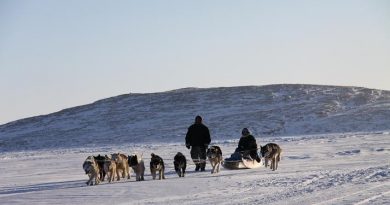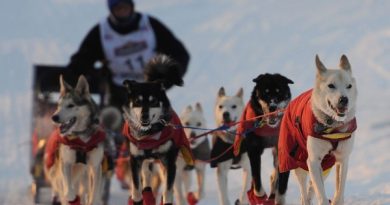Dog musher puts in 1,200 km training run ahead of Nunavut Quest
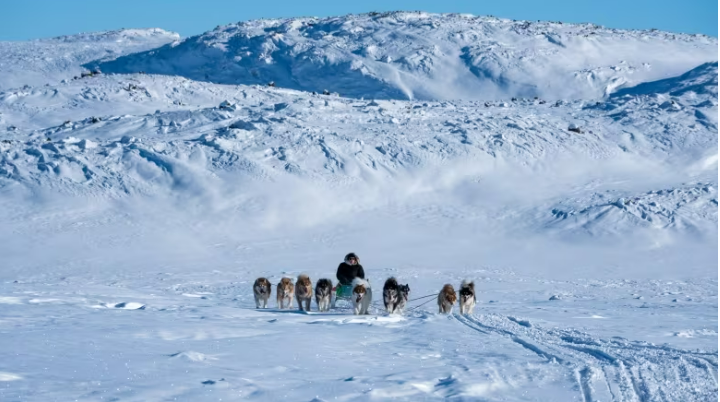
There’s nothing like an 1,200-km warm up for a 400-km race.
Jovan Simic, a dog musher living in Iqaluit, ran his dogs from the capital to Igloolik as a training run before running them through the Nunavut Quest — itself a demanding journey of over 400 km — later this month.
The Nunavut Quest is an annual dog sled race across sea ice and tundra. Sledders take days to finish and camp along the way. The Quest changes routes each year. For the upcoming race, mushers will begin in Igloolik on April 11 and end in Arctic Bay on April 17.
Simic said he’s feeling refreshed after 19 days of travel to get to the Quest’s starting point, his dogs however, are a little tired.
“They did most of the work,” he said.
For the first 16 days of the journey it was just Simic, his partner Annie and their 10 dogs.
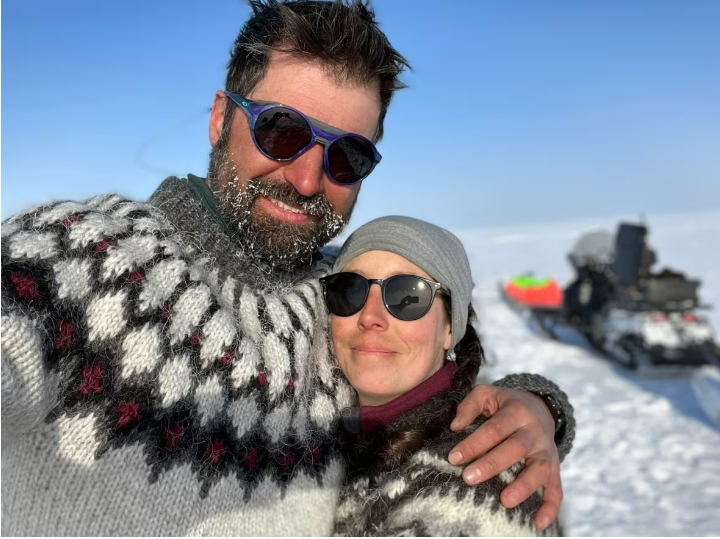
After that some friends met up with them and travelled the final three days to Igloolik.
“Finally meeting people and hearing skidoos approach our tent was kind of surreal because it’s — well for me — it feels like middle of nowhere, and then you just see these familiar faces show up. That was very exciting,” Simic said.
To pack for the journey he said they carried about 771 kilograms of dog food in addition to fuel and food for themselves.
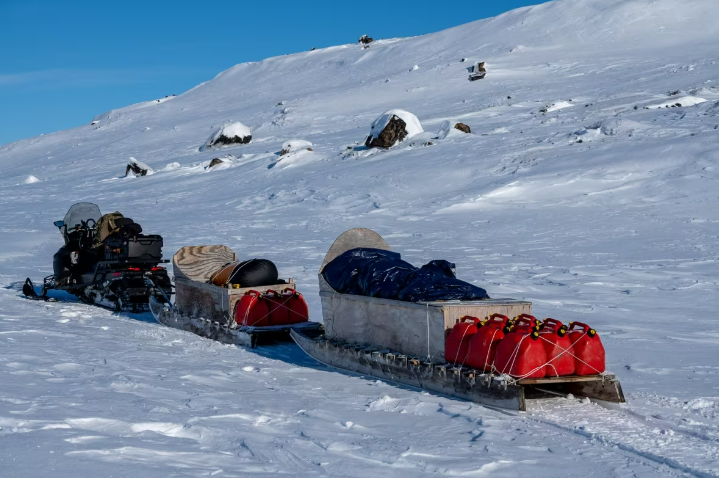
Simic said that he’s been drawn to the west side of Baffin Island and Nettling Lake for a long time and experiencing the area for himself is what pushed him to do the trip.
Simic said he’s done sled trips before, but none as long as this.
This is also the first trip where he said he hasn’t been able to get GPS tracks.
Although he said lots of people have travelled from Iqaluit to Igloolik he wasn’t able to find GPS tracks to follow past Nettling Lake.
Simic said he and Annie spoke with elders and some others who had done the journey and drew out maps of their routes with landmarks.
“Surprisingly they were very accurate,” he said.
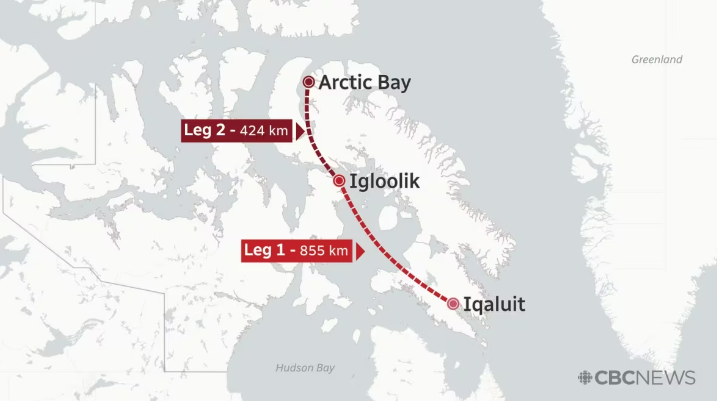
One friend had drawn the map from when he did the trip 13 years ago.
“And some of the things he pointed out, it was exactly how I envisioned it when we talked before the trip, so that really helped,” Simic said.
Simic tracked his trip, though he’s not sure his was the best route.
“We were in some hills and boulder fields and wrecked the qamutiik [traditional sled] so I’m sure there’s a better way of doing that but at least there’s some reference — maybe where not to go,” he joked.
He said with the detours the 19-day trip spanned about 1,200 kilometres, despite the distance between Iqaluit and Igloolik being closer to 1,000 kilometres.
With a little over a week before the Nunavut Quest, Simic said his dogs have some time to rest.
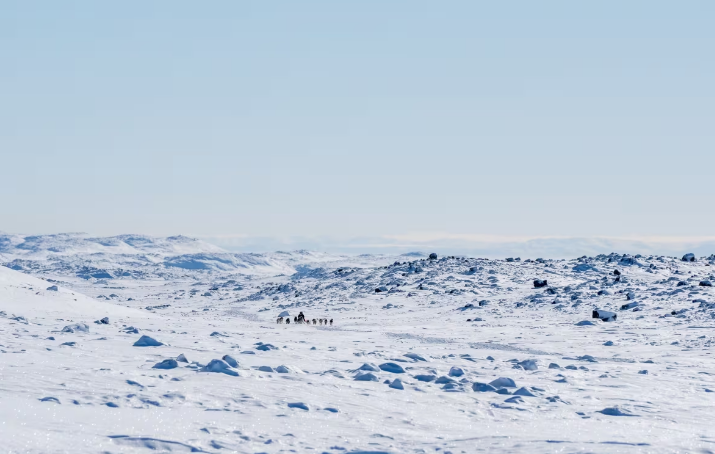
Racing in the quest is something he said he’s always wanted to do but is also a bit nervous for.
“[The other racers] they’ve been doing it for so long and you can just see how ingrained the culture and tradition is with the dogs there. And I’m like ‘are my dogs going to be able to keep up,’ but I guess we’ll see,” he said.
“I’m just excited to be part of it and whatever happens, happens.”
He said already, Igloolik has been extremely welcoming.
Terry Uyarak is one of the friends that met Simic and Annie to travel into Igloolik.
He’s also a two-time competitor with the Nunavut Quest.
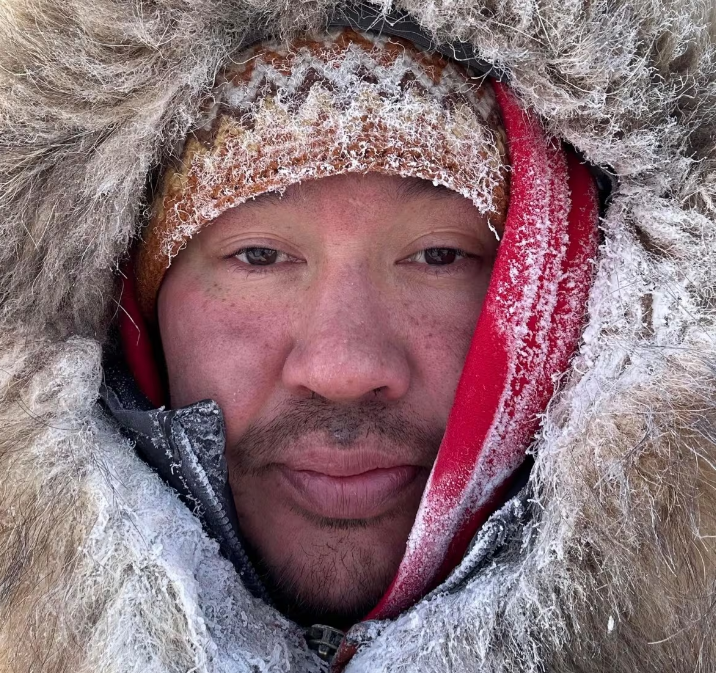
For him, the community Simic is describing and the connection to traditional values is the best part of the Quest.
He said the competitors race their hardest toward the end of each leg of the Quest.
For much of the day Uyarak said racers sled together, sharing stories and laughing.
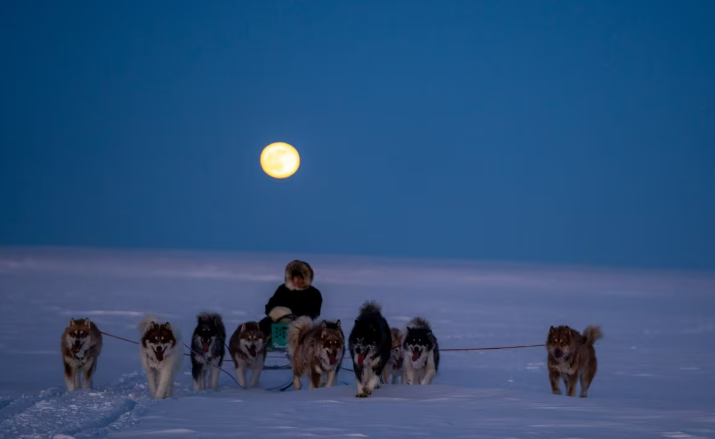
When they camp for the night, often they’re eat their meals together.
“The best experience for me is those days we’re getting together at night, elders telling stories of how they used to live with dogs and really make the focus traditional dog teaming,” Uyarak said.
“How we can keep this tradition alive to this day and moving forward, those are the moments I really really love.”
Uyarak said racers will be competing from across the territory while all coming together like a “mobile village.”
Written by Natalie Pressman with files from Teresa Qiatsuq and Sara Minogue
Related stories from around the North:
Alaska: Moose attacks mushers’ team in Alaska, injuring 4 dogs, CBC News
Canada: ‘An amazing thing’: Iditarod dog found 3 months after disappearing from race checkpoint, CBC News
Finland: Duo aiming to raise funds for jobless sled dogs in Arctic Finland, Yle News
Norway: Could drones help prevent polar bear attacks on the Arctic archipelago of Svalbard?, The Independent Barents Observer
Sweden: Moose on the move — the latest subject for “slow TV” in Sweden, Radio Sweden.


